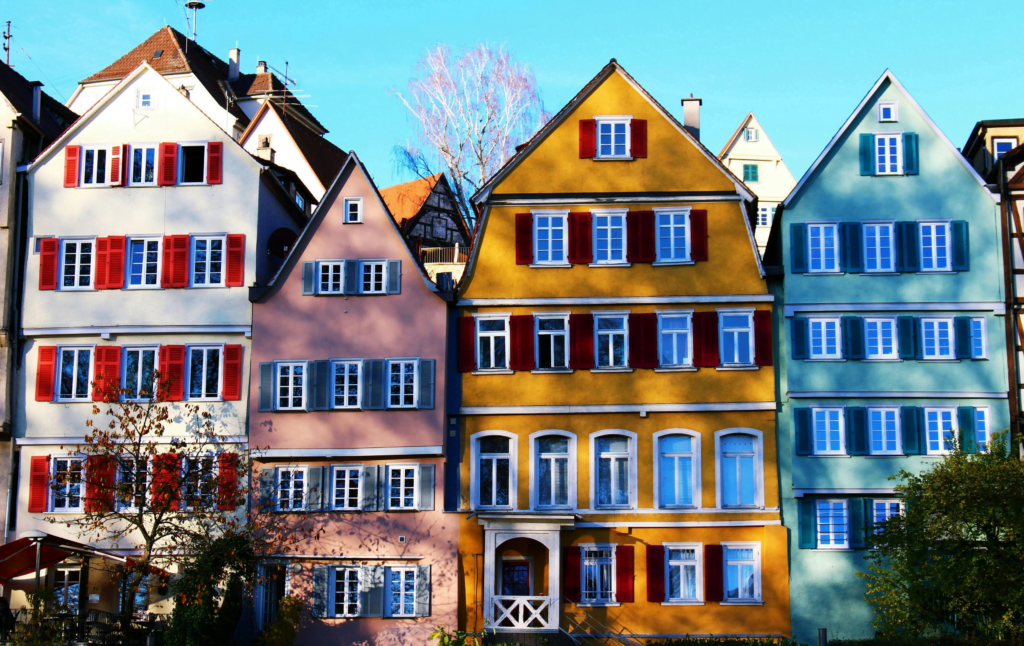
Germany is known for its rich history, stunning landscapes, and contributions to fields like engineering, music, and science. But what about the people who live there? Understanding the culture, traditions, and typical characteristics of German people is essential for anyone considering studying, working, or traveling in Germany.
In this article, we will dive into the traits, values, and social behaviors of German people. We will cover everything from communication style and work ethic to social norms and how they perceive relationships. Whether you’re planning to move to Germany or just want to understand its people better, this guide will offer valuable insights.
1. Key Traits of German People
Germany is a diverse country with over 83 million inhabitants, and it’s essential to remember that generalizations don’t always apply to every individual. However, certain cultural traits are commonly observed among the German population. Here are some defining characteristics of German people:
a. Punctuality
One of the most well-known traits of Germans is their respect for time. Germans are known for being punctual, and lateness is often considered disrespectful. Whether it’s a casual meeting with friends, a business appointment, or public transport schedules, punctuality is highly valued in German culture.
For someone new to the country, it’s crucial to understand that arriving late to a meeting or social event could be perceived as impolite or disorganized. If you have an appointment or a date, arriving on time or even a few minutes early is the norm.
b. Direct Communication
German people are known for their direct and honest communication style. They tend to speak their minds clearly and don’t sugarcoat their opinions. While this straightforwardness might come off as blunt to those from cultures that value indirect communication, it’s a sign of respect in Germany. Germans believe that being clear and honest prevents misunderstandings and fosters trust.
For international visitors, especially those from cultures where subtlety is more common, it’s important to understand that Germans usually don’t intend to offend—they simply prefer to be transparent.
c. Strong Work Ethic
Germany has one of the strongest economies in the world, and this is partly due to the diligent and structured work ethic ingrained in its people. Germans take their professional responsibilities seriously and tend to maintain a clear distinction between work and personal life. Efficiency, productivity, and attention to detail are highly valued traits in the workplace.
While Germans are hard-working, they also emphasize the importance of work-life balance. The concept of “Feierabend” (literally “celebration evening”) refers to the time after work when people relax and unwind, showing that while work is important, so is leisure.
d. Order and Structure
Order and structure are important elements of German life. Rules, systems, and regulations are followed rigorously to ensure things run smoothly. Whether it’s in public transport, traffic laws, or bureaucracy, Germans tend to respect the systems in place, believing that following rules contributes to a harmonious society.
This cultural trait can be seen in everyday life. For example, Germans are usually strict about sorting their recycling correctly, following pedestrian crossings, and adhering to quiet hours in residential areas.
2. German Social Norms and Etiquette
German society has a set of unwritten social rules that govern behavior in various situations. Understanding these norms will help you better navigate social interactions in Germany.
a. Personal Space
In Germany, people generally value personal space and are not as physically demonstrative as those from some other cultures. While it’s common to greet friends with a handshake or a friendly wave, hugs and other forms of physical contact are typically reserved for close family and friends. It’s important to respect this boundary, especially when interacting with people you don’t know well.
b. Politeness and Formality
Although Germans are direct in their communication, they place a high value on politeness and formality, especially when meeting someone for the first time. The use of formal titles like “Herr” (Mr.) and “Frau” (Mrs.) is common in both professional and social settings, and addressing someone by their title is a sign of respect.
In Germany, politeness extends to daily interactions, such as greeting shopkeepers, saying “thank you” (Danke), and using “please” (bitte) frequently. Manners are considered important, and being polite will help you make a good impression.
c. Gift Giving
If you’re invited to someone’s home in Germany, it’s customary to bring a small gift, such as flowers or a bottle of wine. This gesture is a way of showing appreciation and is considered polite in social settings. Germans are also known to give and receive gifts during holidays like Christmas and birthdays, and the thoughtfulness of the gift is often more important than its value.
d. Respect for Privacy
Germans are private people, and they tend to keep their personal and professional lives separate. It’s common for people to avoid discussing personal matters with acquaintances or colleagues unless they have developed a close relationship. As a result, asking about someone’s salary, political views, or religious beliefs is often considered inappropriate unless the topic arises naturally in a conversation with someone you know well.
3. The German Sense of Humor
While Germans are often stereotyped as being serious, they do, in fact, have a rich sense of humor—though it may be more understated than in some other cultures. German humor often leans toward the dry, witty, and sarcastic, and it can take time for outsiders to pick up on the nuances. Slapstick and absurdist comedy also have their place, with popular comedians like Loriot and shows like “Der Tatortreiniger” enjoying widespread popularity.
Understanding German humor is often about reading between the lines, as jokes can be subtle and intellectual. Once you become familiar with it, you’ll find that Germans have a playful side that complements their otherwise formal demeanor.
4. German Hospitality and Friendships
a. Hospitality
While Germans may seem reserved at first, they are known for their warm and generous hospitality once they get to know you. Inviting someone into their home is a sign of trust, and when they do, they will often go out of their way to make you feel comfortable.
Germans take pride in their homes, and visitors are usually expected to remove their shoes upon entering, a tradition known as “Hausschuhe.” Offering a drink or snack to guests is common, and engaging in polite conversation about topics like travel, hobbies, and current events is the norm.
b. Making Friends in Germany
Forming friendships with Germans may take time, as they tend to be cautious about opening up to new people. However, once you’ve earned a German’s trust, you will find that their friendships are genuine, long-lasting, and loyal. Germans value sincerity, so shallow or fleeting relationships are less common than in some other cultures.
Social activities, like attending festivals, joining clubs (“Vereine”), or participating in group activities, are excellent ways to meet people and build friendships. Germans enjoy shared experiences, and bonding over common interests is a natural way to forge deeper connections.
5. Regional Differences in Germany
It’s essential to remember that Germany is a diverse country with 16 federal states (“Bundesländer”), each with its own unique traditions, dialects, and cultural nuances. Here are some regional characteristics:
- Bavaria: Known for its traditional customs, such as lederhosen, dirndls, and Oktoberfest, Bavaria is one of Germany’s most culturally distinct regions. Bavarians are known for their strong sense of regional pride and hospitality.
- Berlin: As the capital city, Berlin is a melting pot of cultures and offers a more liberal and open-minded atmosphere. Berliners are known for their humor and directness, often referred to as “Berliner Schnauze.”
- North vs. South: Germans in the northern regions, such as Hamburg or Bremen, may come across as more reserved and formal, while those from the south, particularly in Bavaria and Baden-Württemberg, are often perceived as more laid-back and jovial.
- East vs. West: The legacy of East and West Germany still lingers, with subtle cultural differences remaining between these regions. For example, people in the former East Germany may have different perspectives due to their historical experiences with communism and reunification.
Conclusion
In conclusion, understanding what German people are like goes beyond surface-level stereotypes. Germans are known for their punctuality, direct communication, and strong work ethic, but they also have a deep sense of hospitality, respect for privacy, and a unique sense of humor. While it may take time to form close relationships with Germans, once you do, you’ll find them to be loyal and trustworthy friends.
Whether you’re planning to move to Germany for work, study, or travel, understanding the cultural traits and social norms of the German people will help you adapt more quickly and feel at home in this fascinating country. By respecting their values and learning how to navigate the subtleties of German culture, you’ll find it easier to connect with people and build meaningful relationships.


